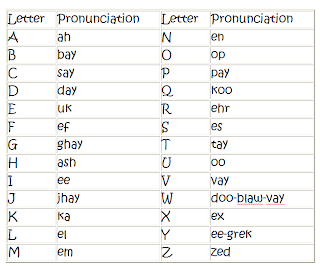As your child begins (or in some cases, continues) their school career in a second language, it is important for this language to be reinforced at home. Throughout the year, I will be posting any helpful information, websites, word lists, and so forth that I think will be helpful at home. Any questions you may have about any of these postings, please feel free to either contact me through your child's agenda, or through a scheduled meeting. Good luck!
November 22nd, 2013In science, we have been discussing living things. Human beings are a big topic, and the parts of the human body are important vocabulary for your child to know. To make learning this vocabulary fun, we sing this song in class :)
October 28th, 2013
I thought I would post a few pictures illustrating as few of the exciting things we have been learning in class! Enjoy!
Students were sorting numerals, number words, ten frames, tally marks, addition sentences, as well as tens & ones! They did an awesome job working together to sort the MANY cards!!!
Even and Odd number sorting.
Making spooky patterns!
More patterning.
And even more patterning!!!
Sorting ten frames in order from smallest to largest (en ordre croissant) - a tough skill for grade one!
September 17, 2013
This week and last we have been focusing on different objects found within our classroom. This is in part so students know where to find things in their classroom, but also it is the beginning of a long year of building vocabulary!
Here is a song that we sing in order to help us remember some important vocabulary words! Enjoy singing it with your little one :)
http://www.youtube.com/watch?v=098Xf9d-Ntw
We have also been singing this "bonjour" song most mornings. Another cute one to recite at home!
http://www.youtube.com/watch?v=atNkI6QFZ50
September 2nd, 2013
http://fslhomeworktoolbox.ca/
FSL Homework Toolbox is a new website that I have just been introduced to through our school board. I am sharing this with you in hopes that you find it helpful! I have not had too much time to go through it, but from what I've seen I felt that it was worth posting. :)
Another website that is helpful is http://wordreference.com/
This is the best translator around, and I use it on a regular basis myself whenever I need help with a word, or whether or not the French word is masculine or feminine!
In order to help your child learn the National anthem in French, make it a routine to sing the national anthem in French at home in the morning as you're getting up, or on the weekends as you and your family roll out of bed.
Reinforcement at home always helps!
O Canada!
Terre de nos aieux,
Ton front est ceint de fleurons glorieux!
Car ton bras sait porter l’épée,
Il sait porter la croix!
Ton histoire est une épopée
Des plus brillants exploits.
Et ta valeur, de foi trempée,
Protégera nos foyers et nos droits.
Protégera nos foyers et nos droits.
Check this link out to help with French numbers - 0 to 100! This is a difficult task for children at the beginning of grade one. According to the Ontario Curriculum, students in grade one need to be able to "represent and order whole numbers to 50" - however, it does not hurt your child to know their numbers up to 100.
http://www.youtube.com/watch?v=41XBbC7zWPI&feature=related
In class we will be singing songs focusing on the days of the week, as well as the months. Here is a link to the days of the week. We will be singing a little tune to the months of the year also, so after a few weeks of school, ask your child to try to sing it for you! It's really cute :)
http://www.youtube.com/watch?v=Lpwf5N0rfVE&feature=related
To start off, here is the French alphabet, with English pronunciation. This will help at home! Try singing it during bath time, or in the morning when you're little one is getting dressed for school!
Check out this great video, with song and flashcards! A great help for parents without French, and your children! Do it together!!!!
http://www.youtube.com/watch?v=lWNWobUPAtM&feature=related
I just came across this useful poster and thought I would share it! I will be using it in class at some point of course, but thought I would post it as my first "at home helper." These posters stress the difference in pronunciation using the letters "G" and "C". Just like in the English language, these letters can have a hard or a soft sound. The hard sound of C sounds like Cat, where the soft sound you find in the word Ocean. The hard sound of G sounds like Good, where the soft sound sounds like George. In French, "G" and "C" have hard (dur) and soft (doux) sounds. See the below posters for a clear explanation. Practice these words with your child. When reading at home each night, encourage your child to find hard and soft "G"s and "C"s within their books.
Here are the basic words your child should know going into grade one. These will be displayed on a wall in our classroom, and reinforced on a regular basis in class. It doesn't hurt to practice them at home, as they are important sight words that are found repeatedly throughout grade one.
You can also sing these words together at home, as we do at school, to the tune of Mary Had a Little Lamb.















Some sheets from www.millemerveilles.com thanks for the link :)
ReplyDelete